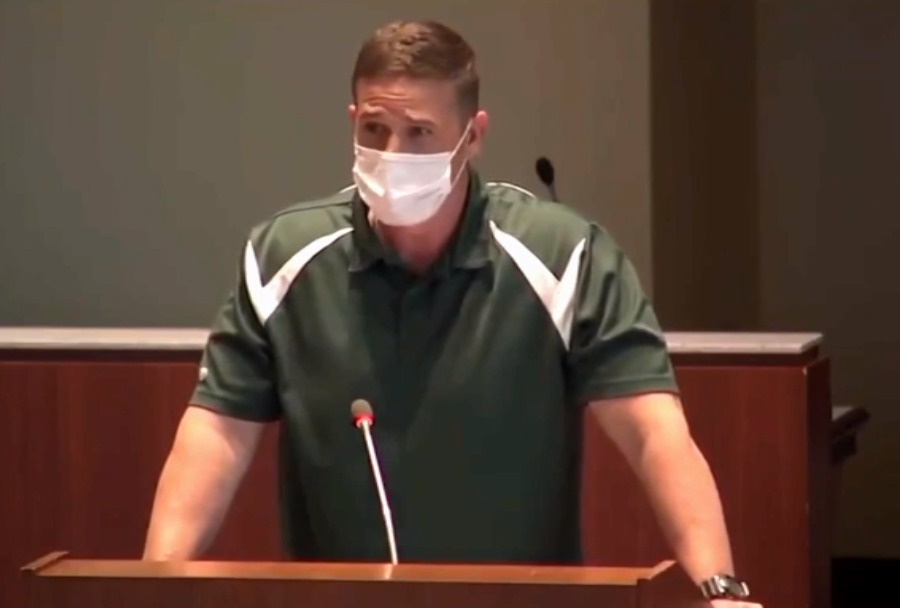A Virginia teacher must be reinstated from leave after telling the school board he wouldn’t address transgender students by their pronouns, a judge ruled.
The Virginia 20th Judicial District Court granted Tanner Cross’ request for a temporary injunction, saying the school district must allow him to return to his position and stop banning him from Loudoun County Public Schools property.
Judge James E. Plowman Jr. wrote that he granted the injunction because Cross' rights to speech and religious liberty are central to the case.
Cross was suspended after voicing his objection to a proposed policy on how to address transgender students. Cross told the Loudoun County School Board he believed following the policy would be “abuse of a child" and "sinning."
The court said Cross' comments are considered protected speech and the district did not prove his comments caused any significant disruption to school operations.
The school district said later Tuesday that they had no comment on the ruling.
Multiple school board members received death threats, and security will be heightened at a school board meeting Tuesday night. A bomb squad conducted a sweep of the administrative building’s grounds.
Cross’ suspension and reinstatement is one of several controversies in the school district. For several months, some parents have opposed the district implementing critical race theory, an academic framework for addressing race, in the classroom. District officials defended their treatment of equity issues.
The school board is set to announce Tuesday evening who will be hired as the next superintendent.
Cross, a physical education teacher, filed a lawsuit against the school board last week claiming he is being punished for exercising his First Amendment rights. He went to court in Leesburg hoping to get a judge to lift his suspension while the suit is litigated.
During Friday’s hearing, an attorney for the school system said the principal at Leesburg Elementary School had to remove Cross from one of his jobs the next day because he feared backlash from parents, and over the course of 48 hours, five parents asked him to remove their child from Cross’ class.
Cross’ attorney argued it was his client’s right under the First Amendment to express his views at the public meeting.
“When LCPS suspended Tanner they crossed a line, and that’s why we took them to court,” Tyson Langhofer said.
“Last Tuesday, I went to school board meeting and respectfully objected to two proposed policies,” Cross said at a rally after Friday’s hearing. “When I spoke, I was thinking about my values, my students, my parents and my fellow teachers. The truth is I’m not alone. Many of us are concerned that proposed policies would harm students and require us to violate our beliefs by saying things that are not true.”
Not long after the three-hour court hearing concluded, dozens of supporters gathered around Cross and prayed.
“LCPS should not require me to violate my conscience and lie to my students,” Cross said.
“I’m outraged, I’m furious, that a teacher who loves his job and his students is not teaching,” parent Beverly McCauley said.
Cross told the school board last month he could not abide by a proposed policy that would violate his beliefs.
He was suspended 48 hours later and was told he had engaged in conduct that had disrupted the operations of Leesburg Elementary School where he teaches.
Cross told the board his religious beliefs would prevent him from addressing students by their chosen pronouns rather the ones consistent with their biological sex.
In remarks that lasted less than a minute, Cross told the board he does not believe a biological boy can be a girl and vice versa. He called it abuse to a child and sinning against God.
The school board has so far not commented on the suspension or the lawsuit.
According to court documents, "an aggrieved party" has 15 days to ask the court to review the ruling. The judge directed Cross, the school board and attorneys to schedule a trial within weeks.
The proposed policy Cross is against is one of two that have not yet gone into effect, and the court hasn't weighed in on the policy.



